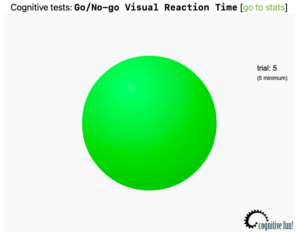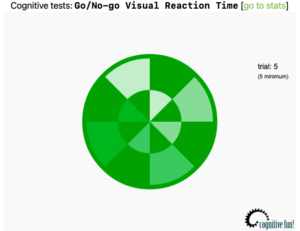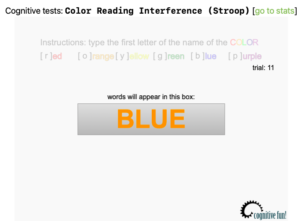Following on from a previous blog where I attended a school to undertake data collection on whether the timing of exercise (performed in the morning, or afternoon) affects a child’s cognitive function.
Here are the tests explained.
- The Go-No-Go test measures the visual reaction time. It has a stimulus that needs to be responded to, and one that should not be responded to. So, the children had to click on the pain green dot and ignore the patterned dot.
- The Stroop test measures the ability to differentiate between the colour presented and the mismatched name. They must type the colour seen, not the colour written.
- The N-back test, this involves the working memory. It tests the ability to remember the image shown 2 before the one you just saw (it is quite confusing, so you can image how puzzled the kids were). You must click if you saw the same image ‘2 before’.
After processing the data on SPSS (software used for statistical analysis).
The results were, the timing of exercise performed in the morning or afternoon, does not affect a child’s cognitive function; however it does increase the speed of which their cognitive function works. In the afternoon, there was a higher cognitive speed meaning the children were quicker at doing the tests, but not necessarily more accurate. There were only a few time effects in the Stroop test whereby the children produced a higher cognitive function result in the afternoon compared to the morning.
So, to conclude, there was little or no effect of exercise timing, but the children got quicker throughout the course of the day. This could be due to multiple things such as the children getting familiar with the test or the fact that their brains and cognitive function is more alert and awake in the afternoons.
Respond


